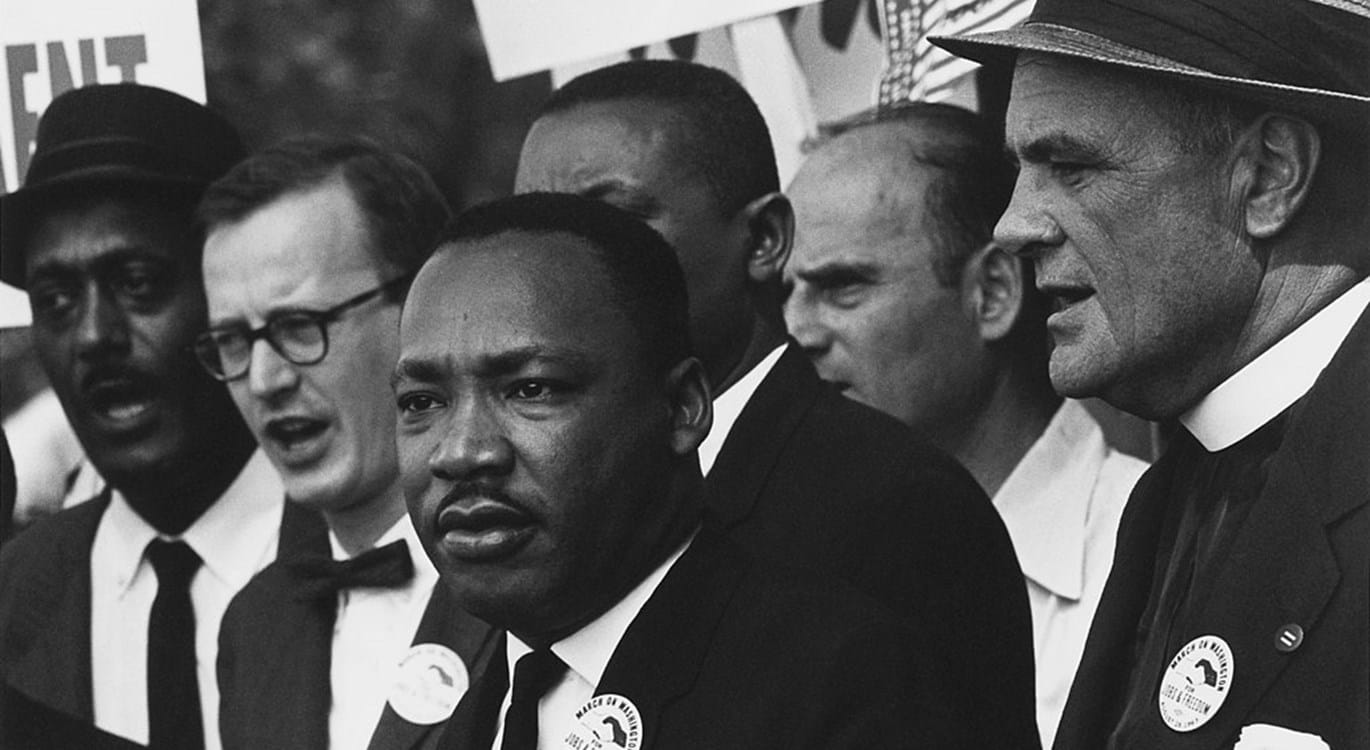Martin Luther King Junior was born in 1929 in Atlanta, Georgia; he became a Baptist minister and social activist, leading the Civil Rights Movement in the United States from the mid-1950s until he was assassinated in 1968.
Through peaceful demonstration and inspirational words, he played a leading role in ending the legal segregation of African-American citizens in the United States, and also in the introduction of the Civil Rights Act of 1964 and the Voting Rights Act of 1965.
Famous for his ‘I have a dream’ speech delivered on August 28th 1963, Luther King received the Nobel Peace Prize in 1964 and is remembered as one of the most influential and inspirational African-American leaders in history.
The quotation we are considering in this article comes from a sermon preached by him in late 1957 titled ‘Loving your enemies’.
"Darkness cannot drive out darkness; only light can do that. Hate cannot drive out hate; only love can do that."Martin Luther King, Jr.
In the sermon, Martin Luther King acknowledged that this teaching of Jesus in the Bible is hard to practise but he sought to do so and, in some measure, succeeded. Did he hit on the solution to the world’s problems and, if so, why are wars and strife of all kinds still rife today?
The Bible elsewhere tells us that ‘the light shines in the darkness, and the darkness has not overcome it’ (John 1:5) and that ‘love covers a multitude of sins’ (1 Peter 4:8). Further, in the famous chapter about love (1 Corinthians 13) Paul writes that, among other things, love ‘is patient and kind’ (verse 4) and love ‘bears all things, believes all things, hopes all things, endures all things’ (verse 7).
Why, then, has light never totally eradicated darkness? Why has love never ultimately triumphed in this world? After all, it is surely only a minority that are revelling in darkness and fuelled with real hate.
"Why has love never ultimately triumphed in this world?"
The Bible answers these questions in a statement most likely made by Jesus Himself: ‘people loved the darkness rather than the light because their works were evil’ (John 3:19). Jesus was stating that people’s love is misdirected – to ‘love darkness’ goes hand-in-hand with embracing ‘evil works’.
This concept is well understood. When photographers Greg Girard and Ian Lambot spent five years attempting to capture life in Kowloon Walled City, the largely ungoverned, densely populated enclave within Hong Kong notorious for drugs, sexual depravity and crime, they called the book they published in 1993, City of Darkness.
The root cause of this is a problem traced back to the beginning of the Bible, when Adam, the father of the human race, rebelled against God and ‘sin came into the world through one man’ (Romans 5:12). As a result, every member of the race is scarred from birth. The symptoms were quickly seen. Genesis 4 records that Adam’s elder son Cain hated his brother Abel and murdered him, ‘because his own deeds were evil and his brother’s righteous’ (1 John 3:12).
John writes about Jesus: ‘this is the true light, that lights every man, coming into the world’ (John 1:9). The darkness could not overcome this ‘true light’, Jesus Christ, the Son of God, who said about Himself:
"I am the Light of the world. Whoever follows Me will not walk in darkness, but will have the light of life."John 8 12 (NKJV)
In His spotlessly holy life, Jesus showed Himself to be that true light, perfectly displaying true love, Indeed, in order to provide a way back to God for men and women who were otherwise doomed to eternal punishment, He was willing to experience causeless human hatred, being beaten, abused and unjustly condemned to an agonising death on a Roman cross. As He said, ‘they hated Me without a cause’ (John 15:25). More than that, hanging on the cross He was even willing to endure three hours of supernatural darkness, during which He bore the full force of God’s wrath against sin. But, as He had predicted, the darkness failed to overcome the true light: on the third day Jesus rose again in triumph.
True Christians are those who have turned from their sinful way of living and from their own efforts to please God, and have trusted in Christ for salvation, receiving Him into their lives to be their Lord. They have been transferred ‘out of darkness into [God’s] marvellous light’ (1 Peter 2:9) and ‘to the kingdom of His beloved Son’ (Colossians 1:13).
The world is still a dark place, where billions reject the good news of salvation through Jesus Christ and seek to find solutions to global problems through human wisdom, their minds ‘blinded’ to the ‘light of the glory of the gospel of Christ’ by the ‘god of this world [the devil]’ (2 Corinthians 4:4).
Nor is the attitude of the world passive towards Christians. Christ Himself warned of the persecution His followers would have to endure: ‘… the world hates you’ (John 15:19).
Against that backdrop, however, Christians are encouraged to ‘walk as children of light’ (Ephesians 5:8) – to live in a way that is transparent, with no fear of shame. This is possible only for those whose lives are under the control of Christ, for they alone ‘have the light of life’ and can therefore become ‘luminaries [light-bearers]’ (Philippians 2:15, YLT).
All believers in Christ are also called to exhibit love: ‘walk in love, as Christ loved us’ (Ephesians 5:2). This too is a character trait only truly manifested in someone who has first-hand experience of the love of Christ. John writes about it: ‘we love because he [Christ] first loved us’ (1 John 5:19).
So, will light and love ever reign in this world as a whole? Not until all rebellion against God has been put down, evil of every kind removed, and Christ reigns in peace and righteousness (Isaiah 32:1). But they can reign now in your heart if you will receive ‘the Light of the World’ as your Lord.



